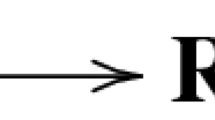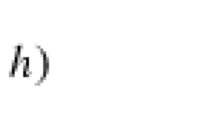Abstract
We introduce two notions of complexity of a system of polynomials p 1,..., p r ∈ ℤ[n] and apply them to characterize the limits of the expressions of the form \(\mu (A_0 \cap T^{ - p_1 (n)} A_1 \cap \cdots \cap T^{ - p_r (n)} A_r )\) where T is a skew-product transformation of a torus \(\mathbb{T}^d \) and \(A_i \subseteq \mathbb{T}^d \) are measurable sets. The dynamical results obtained allow us to construct subsets of integers with specific combinatorial properties related to the polynomial Szemerédi theorem.
Similar content being viewed by others
References
V. Bergelson, Weakly mixing PET, Ergodic Theory Dynam. Systems 7 (1987), 337–349.
V. Bergelson and A. Leibman, Polynomial extensions of van der Waerden’s and Szemerédi’s theorems, J. Amer. Math. Soc. 9 (1996), 725–753.
V. Bergelson and R. McCutcheon, Uniformity in polynomial Szemerédi theorem, in Ergodic Theory of ℤ d-actions, Cambridge Univ. Press, Cambridge, 1996, pp. 273–296.
N. Frantzikinakis, Multiple ergodic averages for three polynomials and applications, Trans. Amer. Math. Soc., to appear. (Arxiv, reference math.DS/0606567.)
N. Frantzikinakis and B. Kra, Polynomial averages converge to the product of integrals, Israel J. Math. 148 (2005), 267–276.
H. Furstenberg, Ergodic behavior of diagonal measures and a theorem of Szemerédi on arithmetic progressions, J. Analyse Math. 31 (1977), 204–256.
H. Furstenberg, Recurrence in Ergodic Theory and Combinatorial Number Theory, Princeton Univ. Press, Princeton, 1981.
H. Furstenberg, Nonconventional ergodic averages, in The Legacy of John von Neuman, Amer. Math. Soc., Providence, RI, 1990, pp. 43–56.
B. Host and B. Kra, Non-conventional ergodic averages and nilmanifolds, Annals of Math. (2) 161 (2005), 397–488.
B. Host and B. Kra, Convergence of polynomial ergodic averages, Israel J. Math. 149 (2005), 1–19.
A. Leibman, Convergence of multiple ergodic averages along polynomials of several variables Israel J. Math. 146 (2005), 303–322.
A. Leibman, Host-Kra and Ziegler factors, and convergence of multiple averages, appendix to “ Combinatorial and Diophantine Applications of Ergodic Theory” by V. Bergelson, in Handbook of Dynamical Systems, Vol. 1B, B. Hasselblatt and A. Katok, eds., Elsevier, Amsterdam, 2006, pp. 841–853.
E. Szemerédi, On sets of integers containing no k elements in arithmetic progression, Acta Arith. 27 (1975), 199–245.
H. Weyl, Über die Gleichverteilung von Zahlen mod Eins, Math. Ann. 77 (1916), 313–352.
T. Ziegler, Universal characteristic factors and Furstenberg averages, J. Amer. Math. Soc. 20 (2007), 53–97.
Author information
Authors and Affiliations
Corresponding author
Additional information
Bergelson and Leibman were supported by NSF grants DMS-0345350 and DMS-0600042.
Rights and permissions
About this article
Cite this article
Bergelson, V., Leibman, A. & Lesigne, E. Complexities of finite families of polynomials, Weyl systems, and constructions in combinatorial number theory. J Anal Math 103, 47–92 (2007). https://doi.org/10.1007/s11854-008-0002-z
Received:
Revised:
Issue Date:
DOI: https://doi.org/10.1007/s11854-008-0002-z




